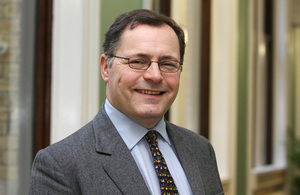UK hopes to further strengthen existing ties with Malaysia

British High Commissioner to Malaysia Charles Hay
Following the UK General Election on 12 December 2019, Prime Minister Boris Johnson has now formed a new government. While the UK government is pursuing a new partnership with the European Union post Brexit, Prime Minister Boris Johnson said the UK remains globally engaged on important issues such as tackling climate change, global security, building academic and scientific cooperation and strengthening trading relationships.
Commenting on how this affects the UK’s relationship with Malaysia, British High Commissioner to Malaysia Charles Hay said:
The longstanding UK and Malaysia relationship is a strong foundation for us to build on. Bilateral trade between the UK and Malaysia has increased 10% to £5 billion and we look forward to growing this even further. The UK will continue to support Malaysia in its reform agenda through the sharing of British expertise and experience. On the defence front, we remain committed to the Five Powers Defence Arrangement (FPDA) which the UK and Malaysia are part of.
With both the UK and Malaysia sharing a common goal in tackling climate change and plastic waste, we have a unique opportunity to work together to address these global problems, ahead of the UN Climate Change Conference of Parties (COP26) which the UK will co-host with Italy in 2020.
The warm UK-Malaysia relationship is evident in the two-way engagement at the highest level. Just last week, HM The Agong visited the UK and met HM Queen Elizabeth II. Prime Minister Tun Mahathir also made working visits to the UK twice this year. Meanwhile, HRH Prince Edward The Earl of Wessex; Foreign Secretary Jeremy Hunt; Peter Estlin, Lord Mayor of the City of London; as well as Justin Welby, Archbishop of Canterbury were among high level visitors who visited Malaysia in the last 12 months. The people-to-people relationship is also reflected in the 19,000 Malaysian students currently studying in the UK and another 80,000 individuals studying for a UK qualification in Malaysia. An estimated 18,500 British nationals are living in Malaysia and approximately 360,000 British tourists visited Malaysia in 2018.
Published 19 December 2019
